Tourism Industry

What strategies can low-income countries adopt to attract more tourists and boost their tourism industry ?
Low-income countries face challenges in attracting tourists due to limited infrastructure and resources, but can boost their tourism industry by developing infrastructure, promoting local culture, offering affordable packages, focusing on sustainable tourism, partnering with agencies, and improving safety.
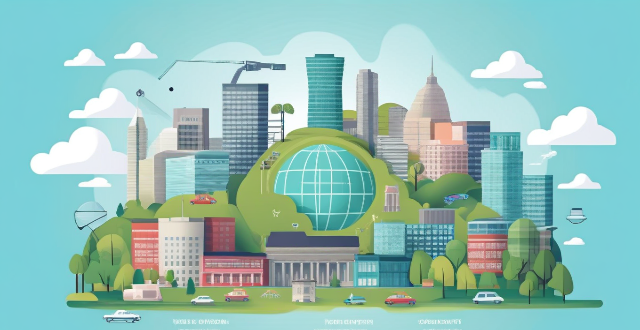
How is the tourism industry adapting to climate change-related risks and opportunities ?
The tourism industry, a significant contributor to the global economy, has been profoundly affected by climate change. The sector is now compelled to adapt to the associated risks and opportunities in various ways, including developing disaster management plans, building more resilient infrastructure, promoting sustainable tourism practices, diversifying offerings to attract tourists throughout the year, adopting green initiatives, developing nature-based tourism activities, creating wellness retreats, and providing educational programs about the connection between climate change and health. By implementing innovative solutions and embracing sustainability, the sector aims to mitigate the negative impacts of climate change and ensure its long-term viability.

How does food tourism impact local economies and cultures ?
Food tourism, also known as culinary or gastronomy tourism, has significant impacts on local economies and cultures. Economic benefits include job creation, increased revenue for local businesses, tourism diversification, infrastructure development, and value addition to local products. Culturally, food tourism promotes the preservation of traditions, cultural exchange, heritage promotion, adaptation and innovation, and community engagement. However, there are potential downsides such as overcommercialization, resource depletion, and pricing issues that require careful management to ensure authenticity and sustainability.

How does eco-tourism impact local communities ?
Eco-tourism, a form of sustainable tourism, focuses on responsible travel to natural areas that conserves the environment and improves the well-being of local people. It has a positive impact on local communities in various ways, including economic benefits such as job creation, income generation, infrastructure development, and foreign exchange earnings. Eco-tourism also promotes environmental conservation by encouraging sustainable practices among local communities, such as habitat protection, wildlife conservation, and education on sustainable practices. Additionally, it helps preserve cultural heritage by showcasing local traditions, customs, and way of life, as well as promoting cultural exchange and artisan development. Finally, eco-tourism contributes to social development by improving healthcare access, creating education opportunities, promoting gender equality, and empowering local communities through involvement in decision-making processes related to tourism development and management.

What are some examples of negative impacts of tourism on the environment ?
Tourism can have negative impacts on the environment, including destruction of natural habitats, pollution, overuse of resources, cultural impacts, physical degradation, and contributing to climate change. It is important to manage tourism sustainably to minimize these effects and preserve the planet's natural beauty for future generations.

What is the future of space tourism and its implications on Earth's resources ?
The development of space tourism by private companies like SpaceX, Blue Origin, and Virgin Galactic may make it more accessible to the public in the future. However, it raises concerns about its environmental impact, economic considerations, ethical concerns, and long-term sustainability. It is crucial to consider these implications to ensure responsible use of Earth's resources while exploring space tourism.

How do food festivals impact tourism in a region ?
Food festivals significantly impact tourism in a region, offering economic benefits and promoting cultural exchange. They attract visitors, boost spending, create jobs, and support local businesses. Culinary diversity, community engagement, and media exposure enhance the region's brand image. Sustainability is crucial for supporting local farmers and managing waste. Successful examples include tomato, wine & cheese, and seafood festivals. Food festivals are powerful tools for driving tourism and enriching the travel experience.
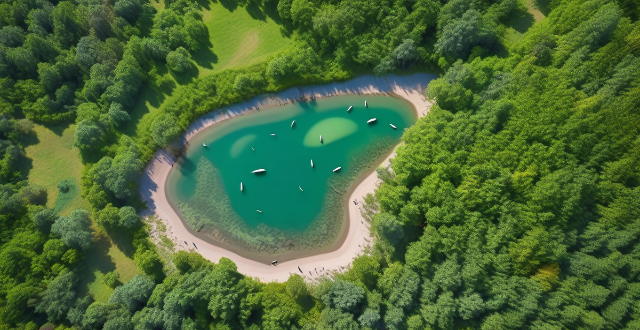
What are some popular eco-tourism destinations around the world ?
Eco-tourism is a form of tourism that focuses on conserving the environment and improving the well-being of local communities. Some popular eco-tourism destinations around the world include Costa Rica, New Zealand, Galapagos Islands, Iceland, and Borneo. In Costa Rica, visitors can enjoy bird watching, hiking in national parks, visiting turtle nesting sites, and surfing and snorkeling in the Pacific Ocean. In New Zealand, visitors can visit glaciers and fiords, trek through national parks, watch whales and dolphins in the Bay of Islands, and participate in Maori cultural experiences. The Galapagos Islands offer snorkeling with sea lions and marine iguanas, watching giant tortoises and land iguanas in their natural habitat, hiking through volcanic landscapes, and visiting research stations and learning about conservation efforts. Iceland offers watching the Northern Lights, hiking through national parks and nature reserves, visiting geothermal areas and bathing in natural hot springs, and whale watching tours in the Atlantic Ocean. Finally, Borneo offers visiting orangutan sanctuaries and rehabilitation centers, trekking through rainforests and visiting caves, river cruising and exploring mangrove forests, and visiting traditional villages and experiencing local culture.

What are the safety measures taken for space tourism ?
Space tourism requires rigorous safety measures, including physical trainingSpace tourism requires rigorous safety measures, including physical trainingancy, medical screenings, including physical training, spacecraft redundancy, medical screenings, and reliable communication systems.
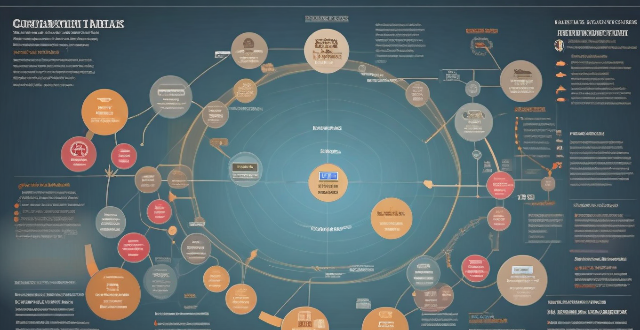
How do regulations affect the growth of the commercial space industry ?
Regulations significantly influence the growth of the commercial space industry by providing a framework for innovation, ensuring safety and security, promoting competition, addressing environmental concerns, and adapting to rapid changes. Effective regulations can facilitate industry growth by reducing uncertainty and lowering barriers to entry, while also protecting public interest through strict safety standards and sustainable practices.

How can I find local experience activities that support sustainable tourism ?
Finding local experience activities that support sustainable tourism is crucial for travelers who want to make a positive impact on the communities they visit. Here's how to do it: 1. **Research Online**: Use sustainable travel portals like Responsible Travel and Green Globe, and check local tourism boards and conservation groups for eco-friendly activities. 2. **Social Media and Forums**: Join travel communities on Facebook and Reddit, and follow influencers and bloggers who focus on sustainable travel for recommendations. 3. **Local Guidebooks and Magazines**: Look for specialized publications like "The Sustainable Travel Handbook" and local magazines featuring eco-friendly activities. 4. **Directly Contact Local Businesses**: Reach out to eco-friendly accommodations like eco-lodges and farm stays, and inquire at local restaurants, especially those focusing on farm-to-table or vegetarian options. 5. **Attend Local Events and Fairs**: Participate in environmental festivals and cultural fairs, and visit farmers markets and artisan markets for insights into sustainable activities. 6. **Use Mobile Applications**: Download apps like EcoCompanion and Book Different to find unique and sustainable accommodations and activities. 7. **Work with Local Guides**: Hire sustainable tour guides and participate in community-based tours that support local economies and conservation efforts. By employing these strategies, you can ensure your travels not only enrich your personal experiences but also contribute positively to the environment and local communities, promoting sustainable tourism practices.

How will commercial space tourism change the way we view Earth and space ?
The advent of commercial space tourism is set to revolutionize our understanding of both Earth and space by making space travel more accessible. It allows us to view our planet from a different perspective, fostering a greater sense of global awareness and interconnectedness, as well as an appreciation for the fragility and beauty of our planet. Additionally, it provides the opportunity for people to experience space firsthand, leading to a deeper understanding of the challenges and opportunities presented by space exploration, renewed interest in science and technology, and increased demand for education in STEM fields. Overall, commercial space tourism has the potential to change the way we view Earth and space by providing unique perspectives and experiences that can help us better appreciate our planet and expand our understanding of the universe beyond.
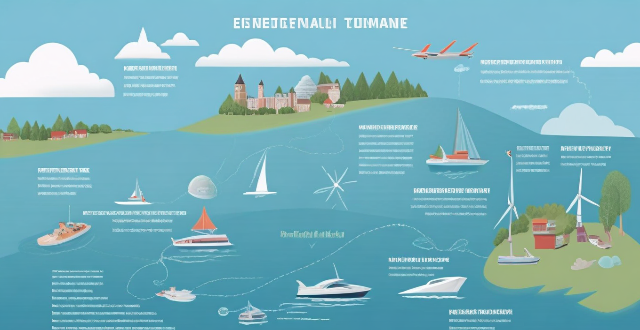
How do extreme weather events such as hurricanes and floods affect tourism ?
Extreme weather events, such as hurricanes and floods, significantly impact the tourism industry by disrupting travel plans, damaging infrastructure, and harming local economies. Travelers may face cancellations, rescheduling, and transportation disruptions, leading to financial losses for both tourists and businesses. Damaged accommodations, inaccessible attractions, and reduced capacity can also deter visitors. Moreover, job losses and economic downturn can occur in areas heavily reliant on tourism. It is crucial for destinations to develop strategies for preparedness, response, and recovery to minimize these adverse effects.

How has sports culture influenced globalization ?
Sports culture has significantly influenced globalization by promoting international cooperation, cultural exchange, economic benefits, media coverage, and tourism. Sports events like the Olympics and World Cup foster goodwill among countries, while also generating revenue through ticket sales and sponsorships. Athletes from different nations come together to share their skills and traditions, leading to mutual respect and appreciation of diverse cultures. Sports tourism is a growing industry that promotes cultural exchange and economic growth in host cities and countries. Overall, sports culture plays a crucial role in promoting global awareness and understanding.

What is the impact of sports tourism on community development ?
Sports tourism, which involves individuals or groups traveling to participate in sports events or recreational activities, has a significant impact on community development. This impact is multifaceted, encompassing economic, social, and environmental dimensions. Economically, sports tourism leads to job creation in various sectors, including tourism, event management, and infrastructure development. It also generates revenue through direct spending by visitors and increased tax revenue for local governments. Socially, it fosters community cohesion, promotes health and well-being, and provides educational and training opportunities. Environmentally, sports tourism can encourage sustainable practices and contribute to conservation efforts. Overall, sports tourism plays a crucial role in community development, but its benefits must be balanced against potential negative consequences.

How has the sports industry influenced the film industry ?
The sports industry has significantly impacted the film industry in various ways, including inspiring storylines, providing cross-promotion opportunities, fostering collaborations between athletes and filmmakers, and shaping certain film genres.

What are the most prestigious awards in the entertainment industry ?
The entertainment industry has several prestigious awards that recognize outstanding achievements in various fields such as acting, directing, producing, and music. Some of the most notable awards include the Academy Awards (Oscars), Emmy Awards, Grammy Awards, Tony Awards, Golden Globe Awards, BAFTA Awards, Critics' Choice Awards, and MTV Movie & TV Awards. These awards not only honor talented individuals but also set the benchmark for excellence in the industry.

What is the impact of sports tourism on international relations and economy ?
Sports tourism, involving travel for sports events, significantly impacts the global tourism industry. It not only boosts the economy through increased revenue and job opportunities but also enhances international relations by promoting cultural exchange and diplomatic engagement. Sports events serve as platforms for peaceful competition, showcasing a country's soft power and fostering international collaboration.

How does eco-tourism contribute to conservation efforts ?
Eco-tourism, or ecological tourism, plays a crucial role in conservation efforts by fostering sustainable practices and raising awareness about the importance of preserving biodiversity and ecosystems. It contributes to conservation in several ways: 1. **Raising Environmental Awareness**: Informed decision-making and behavior changes support conservation goals through educational opportunities provided during eco-tourism experiences. 2. **Direct Conservation Funding**: Fees for park entry, donations to local conservation groups, and investments in infrastructure that benefits both tourists and wildlife directly fund conservation projects. 3. **Encouraging Sustainable Practices**: By promoting eco-friendly transportation, recycling, composting, and community involvement in sustainable practices, eco-tourism reduces the overall environmental footprint of tourism activities. 4. **Supporting Local Economies**: Eco-tourism supports local economies, creating an incentive for communities to protect their natural resources as they rely on them for income. 5. **Protecting Habitats and Biodiversity**: Attracting visitors to protected areas or regions where conservation is a priority helps maintain healthy ecosystems and diverse wildlife populations. Overall, eco-tourism demonstrates that tourism can be a force for good when it operates with a focus on ecological sustainability and community involvement.

Can sports tourism be made more sustainable ?
To make sports tourism more sustainable, strategies can beTo make sports tourism more sustainable, strategies can be: environmental sustainability, social sustainability strategies can be employed in three main areas: environmental sustainability, social sustainability, and economic sustainability. For environmental sustainability, reducing the carbon footprint through flight offsetting and promoting public transportation, building green venues with eco-friendly design and waste management plans, and conserving water through rainwater harvesting and water-efficient fixtures are recommended. For social sustainability, engaging local communities in event planning, ensuring accessibility and inclusivity, and promoting cultural exchange are important. Economic sustainability can be achieved by supporting local economies through local procurement and job creation, adhering to fair wages and working conditions, and investing in long-term legacy planning. Additionally, promoting sustainable practices through education and awareness, partnerships with NGOs, and encouraging sponsors and partners to adopt sustainable practices as part of their corporate social responsibility initiatives can further enhance the sustainability of sports tourism.

How do economic recessions and downturns affect consumer spending on sports-related activities and products ?
Economic recessions significantly impact consumer spending on sports-related activities and products, affecting various aspects of the industry. Reduced disposable income leads to budget cuts and prioritization of basic needs over leisure activities. Changes in consumer behavior include seeking value-oriented options and DIY approaches to sports participation. Decreased ticket sales, cancellations/rescheduling of events, reduced sales of sports goods, and bargain hunting are common during economic downturns. Gym memberships may be canceled in favor of free or lower-cost alternatives, and investment in fitness technology could suffer. Fewer trips for sports tourism and a rise in localized activities are also likely. Sponsorships and advertising revenue may decrease, leading to job losses and wage stagnation across the sports industry. Long-term effects include recovery time and shifting habits formed during recessions. As economies recover, the sports industry must adapt to these changes and find innovative ways to attract consumers back to their venues.
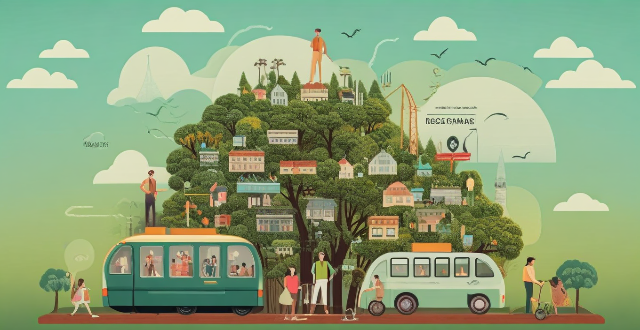
What measures can be taken to reduce the carbon footprint of the tourism sector ?
The text discusses measures to reduce the carbon footprint in the tourism sector, including promoting sustainable transportation, green accommodations, responsible tourism, carbon offsetting programs, renewable energy sources, and proper waste management. These steps aim to minimize the environmental impact of tourism while still allowing people to enjoy traveling and exploring new places.

What are the economic consequences of climate change ?
The article discusses the economic consequences of climate change, including its impact on agriculture, tourism, energy, and infrastructure. In agriculture, decreased crop yields, loss of biodiversity, and increased extreme weather events can lead to higher food prices and reduced agricultural income for farmers. In tourism, loss of natural attractions, changes in seasonality, and health risks can result in reduced tourism revenue for affected regions. In energy, increased demand for cooling systems, disruption of energy production facilities, and transition to renewable energy sources can create new economic opportunities but also require significant investment and adaptation. In infrastructure, damage to critical infrastructure like roads, bridges, and buildings can result in costly repairs and replacements for governments and private sector organizations. Addressing these challenges requires coordinated action by governments, businesses, and individuals to reduce greenhouse gas emissions and adapt to the changing climate.

Are there any celebrities who have publicly spoken about the importance of having true friends in the entertainment industry ?
The text discusses the importance of having true friends in the entertainment industry, as highlighted by various celebrities. These include Taylor Swift, Amy Schumer, Justin Timberlake, Oprah Winfrey, Kristen Bell, Dwayne Johnson (The Rock), Lady Gaga, Emma Stone, Chris Pratt, and Selena Gomez. They have all spoken about the value of genuine connections and supportive relationships in maintaining their well-being and happiness amidst the challenges and unpredictability of the entertainment industry.

How do fuel vehicles affect the economy, particularly in terms of employment in the oil industry ?
The text discusses the impact of fuel vehicles on employment in the oil industry. It highlights that the industry offers a range of jobs from exploration and extraction to refining, distribution, and sales. However, it also notes challenges such as market volatility, environmental concerns, and technological advances that could affect job stability in the sector. The text concludes by emphasizing the need for strategies that promote economic stability while encouraging sustainable practices and innovation.

How has social media impacted the entertainment industry ?
The text discusses the impact of social media on the entertainment industry. It mentions that social media has increased accessibility to content, changed content creation, made it possible for audiences to interact with creators, become a crucial tool for marketing and promotion, and created new revenue streams. The text concludes that social media has had a profound impact on the industry and will continue to shape its future.

How has the private equity industry evolved over time ?
The private equity (PE) industry has undergone significant changes since its inception, evolving from small and mid-sized business investments to larger companies and more complex transactions. The industry has diversified into various sub-sectors like venture capital and distressed investing, allowing firms to specialize in specific areas. Technological advancements have played a crucial role in shaping the PE industry, improving investment decision-making processes. Regulatory changes have also influenced the evolution of the industry, promoting transparency, fairness, and accountability. Looking ahead, the PE industry is likely to continue evolving as it adapts to changing market conditions, technological advancements, and regulatory environments.

What are some examples of successful projects that combine climate action with sustainable development ?
Successful projects that combine climate action with sustainable development often involve the use of renewable energy sources, green infrastructure, agroforestry systems, eco-tourism initiatives, waste management strategies, and water conservation efforts. These initiatives not only mitigate the effects of climate change but also promote economic growth, social inclusion, and environmental protection. Examples include solar power plants in India, gardens by the bay in Singapore, shade-grown coffee farming in Ethiopia, community-based tourism in Costa Rica, recycling infrastructure in Germany, and desalination and water recycling in Israel. These projects demonstrate that addressing one does not have to come at the expense of the other and can be mutually reinforcing goals.

What are the latest trends in the entertainment industry ?
The entertainment industry is constantly evolving, with new trends emerging every year. Some of the latest trends include streaming services, virtual reality and augmented reality technologies, e-sports and live streaming, interactive content, and diversity and inclusion. Streaming services like Netflix and Hulu are becoming more popular as people cut the cord on cable subscriptions. Virtual reality and augmented reality technologies are being explored for use in gaming, movies, concerts, and live events. E-sports has become a major trend with millions of people tuning in to watch professional gamers compete. Interactive content creates a more engaging experience for audiences by allowing them to influence the outcome of a show or movie. Diversity and inclusion are also becoming increasingly important in the entertainment industry as studios and networks work to create more diverse casts and stories that reflect different cultures and perspectives.

What is the impact of e-sports on the entertainment industry ?
E-sports, also known as electronic sports, have become a significant force in the entertainment industry over the past decade. The growth of e-sports has had a profound impact on various aspects of the entertainment sector, including media consumption, advertising, sponsorships, and even traditional sports. In this article, we will explore the different ways e-sports have influenced the entertainment industry. One of the most noticeable effects of e-sports on the entertainment industry is the increased media consumption. With the rise of streaming platforms like Twitch and YouTube Gaming, more people are watching e-sports events than ever before. This has led to a surge in viewership numbers for major e-sports competitions, with some events drawing audiences that rival those of traditional sports. The popularity of live streaming has played a crucial role in the growth of e-sports. Platforms like Twitch allow fans to watch their favorite players and teams compete in real-time, creating an interactive experience that goes beyond simply watching a game. This has not only increased the overall viewership but also provided opportunities for advertisers and sponsors to reach a highly engaged audience. As e-sports continue to gain momentum, so does the number of content creators who specialize in covering the latest news, highlights, and analysis related to the industry. These creators generate a vast amount of content across various social media platforms, further driving engagement and expanding the reach of e-sports within the entertainment landscape. The booming e-sports industry has attracted numerous advertisers and sponsors looking to tap into its growing fanbase. Brands ranging from energy drinks to computer hardware companies have invested heavily in e-sports, sponsoring tournaments, teams, and individual players. Many high-profile e-sports events now feature prominent sponsorship logos and brand integrations throughout their broadcasts. These partnerships not only provide financial support for the organizations hosting these events but also offer valuable exposure for the sponsoring brands. Top e-sports players and teams have secured lucrative endorsement deals with major brands, similar to those seen in traditional sports. These deals often include personal appearances, social media promotions, and exclusive product collaborations, further blurring the lines between e-sports and mainstream entertainment. E-sports' rapid growth has prompted many traditional sports organizations to take notice and adapt accordingly. Several professional sports leagues, such as the NBA and NFL, have launched their own e-sports initiatives or partnered with existing e-sports organizations to expand their reach among younger audiences. There has been a notable crossover between e-sports professionals and traditional athletes, with some former athletes transitioning into e-sports careers or investing in e-sports teams. Additionally, traditional sports stars have participated in e-sports events or collaborated with e-sports personalities, showcasing the increasing interconnectedness of these two worlds. Recognizing the potential of e-sports, several major sports organizations have made substantial investments in the space. This includes everything from forming dedicated e-sports divisions within their organizations to acquiring stakes in existing e-sports teams or leagues. These moves underscore the belief that e-sports represent a viable long-term investment opportunity within the broader entertainment industry. E-sports' impact on the entertainment industry is undeniable, as it continues to shape how we consume media, engage with brands, and interact with both emerging and established forms of entertainment. As e-sports continue to grow and evolve, they will undoubtedly play an increasingly central role in shaping the future of the global entertainment landscape.